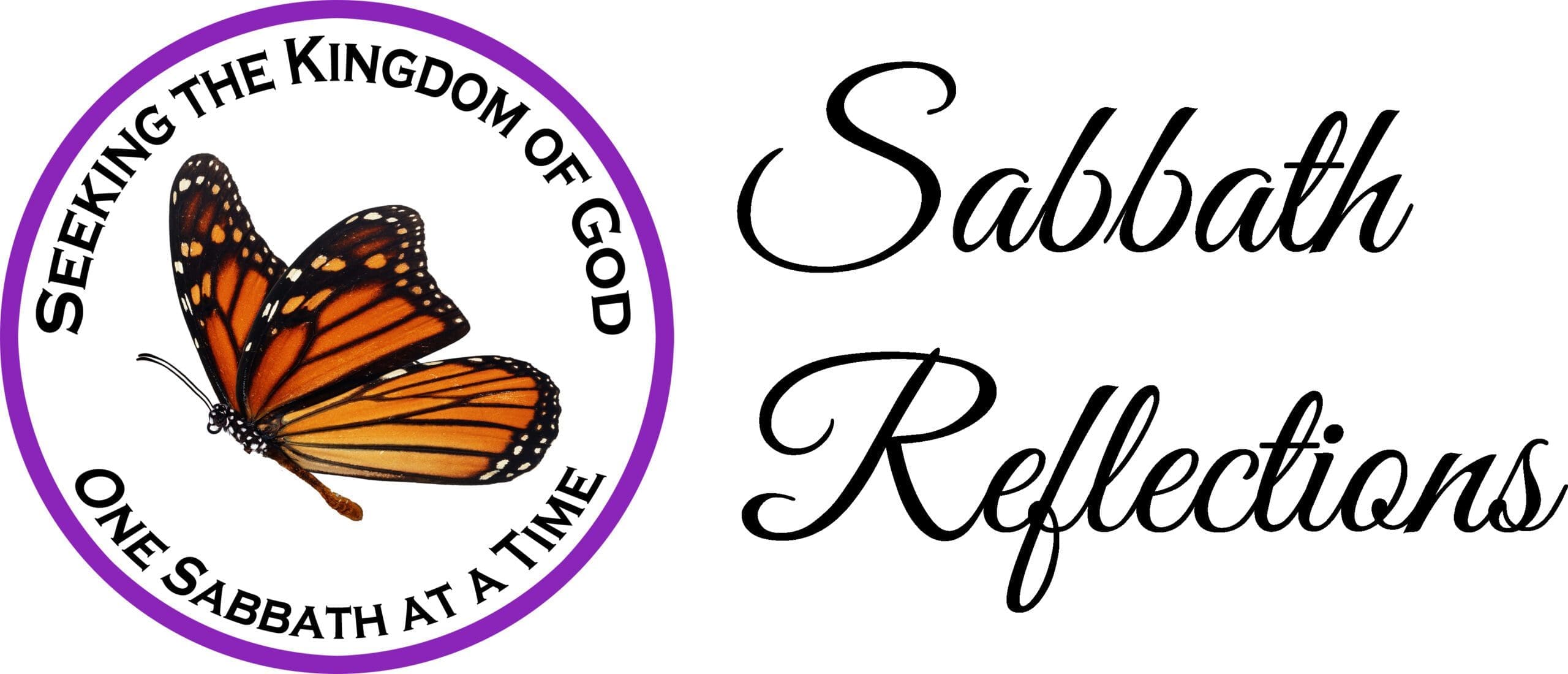SABBATH THOUGHT 2022-04-23—BREAD OF AFFLICTION
May God bless you on His Sabbath day!
Yesterday was the last day of Unleavened Bread. For the ancient Israelites, it was a journey of seven days to escape their enslavement and bondage to the Egyptians. On the first day, they left their homes in Goshen (Ramses) and on the seventh day they crossed the Red Sea, which was the last time they saw the Egyptians (Exo. 14:13). The Days of Unleavened Bread encapsulated several meaningful events in their lives:
1) Each had to trust that God had indeed sent Moses and Aaron to facilitate their freedom.
2) Each witnessed God fulfilling His promise to Abraham to free them in spite of any human efforts to resist it.
3) Each had to trust that God would establish a new homeland and lead them to it. When they left Egypt, they had no place to go.
4) Each had to rely upon God to provide for them and their animals. While they brought some food with them, they had little water in the desert.
5) Each had to accept God’s protection during their journey.
6) Each had to trust that God was leading them to liberty and not into enslavement in other lands by the wicked people who were all around them.
God’s choice to focus on the term unleavened bread is both interesting and meaningfully broad. Initially, God called it:
DEUTERONOMY 16:3 You shall eat no leavened bread with it. Seven days you shall eat unleavened bread with it, the bread of affliction, for you came forth out of the land of Egypt in haste, so that you may remember the day that you came forth out of the land of Egypt all the days of your life.
Why “the bread of affliction?” Because they were slaves. In fact, God said to Abraham, “You must surely know that your seed shall be sojourners in a land that is not theirs, (and shall serve them and afflict them) four hundred years.” (Gen. 15:13). It was, at least in the beginning, a symbol of their bondage under an evil empire.
It also turned out that bread of affliction represented their doubts and fears after they left Egypt. God proved them through thirst and threats from enemies. He tested their willingness to obey His commandments. So, while the bread of affliction initially represented their 200 or so years of actual slavery, it also represented God testing their resolve and obedience by giving them trials and sufferings.
The earliest mention of unleavened bread in the Bible is when Lot fed the two angels who visited him in Sodom (Gen. 19:1-3). It was part of a banquet he prepared for those honored guests. While it may have been that Lot did not have leavened bread available, it is more likely that it had a special meaning not revealed to us.
But the meaning of unleavened bread is much deeper than just a reminder of slavery or fears of the unknown. Paul explains it this way:
1 CORINTHIANS 5:6-8 Your glorying is not good. Don’t you know that a little leaven leavens the whole lump? 7 Therefore, purge out the old leaven, so that you may become a new lump, even as you are unleavened. For Christ our Passover was sacrificed for us. 8 For this reason, let us keep the feast, not with old leaven, nor with the leaven of malice and wickedness, but with the unleavened bread of sincerity and truth.
In fact, if it were not for Paul, the meaning of becoming “unleavened” would be obscure at best. Even the disciples did not understand the meaning of it until Jesus hinted at it:
MATTHEW 16:5-8, 11-12 Now when His disciples came to the other side, they had forgotten to take bread. 6 And Jesus said to them, “Watch out, and be on guard against the leaven of the Pharisees and Sadducees.” 7 Then they reasoned among themselves, saying, “It is because we did not take bread.” 8 But when Jesus knew this, He said to them, “O you of little faith, why are you reasoning among yourselves that it is because you did not bring bread? … 11 How is it that you do not understand that I was not speaking of bread when I told you to beware of the leaven of the Pharisees and Sadducees?” 12 Then they understood that He did not say to beware of the leaven of bread, but of the doctrine of the Pharisees and Sadducees.
I think the spiritual meaning of unleavened is generally well understood today; however, what it meant to the ancient Israelites is something we should also reflect upon. When someone is being called, there comes a point in which a decision must be made—either commit fully to God or not. God gives us time to decide, but eventually we all have to make a choice (parable of the fig tree—Luke 13:6-9). It is during that time when unleavened bread can be the bread of affliction.
Think about it. The bread of affliction can either point to the evil of what we are leaving or the fears of where we must go. It is a reflection of a battle between our heart and mind that begins after we are called. Initially, our heart is full of joy at the prospect of the liberty in God, but our minds soon begin to warn us of the uncertainties we might face. How will this affect my job? What about my spouse or children? How can I afford to tithe? Our minds are full of questions, many of which can raise doubts or fears.
For the heart, the bread of affliction represents the evil world in which we are held captive. The heart desires to flee death and enter into salvation. The mind, however, has fears about the journey toward that salvation. In facing our fears of the unknown, the bread of affliction can embody the uncertainties of the physical life as we begin to obey the things God requires of us. At least up until one is called, there is usually some semblance of security in life. The problem is that change can raise doubts and fears. The bread of affliction means different things to the heart and mind in the struggle between them. In the end, we must decide to follow our heart as we pursue our calling. That also means our minds must be resolved to trust God as we facing those fears. The story of the Exodus portrays this perfectly.
The meaning of the bread of affliction to each of us personally is also why That Night of the Lord (the night of the first DUB) is significant. It is a time to reflect upon our heart’s desire and our mind’s fears when we were called. Obviously, if we chose to follow through on our calling, the desire of our heart outweighed the fears of the mind. Remembering the battle is not only important to us, but also to those being called. God told the ancient Israelites:
DEUTERONOMY 4:9 Only take heed to yourself and diligently keep yourself, lest you forget the things which your eyes have seen, and lest they depart from your heart all the days of your life. But teach them to your children, and your children’s children,
There it is—the heart vs. the mind (eyes). The ancient Israelites wanted to leave Egypt (recall they left with a “high hand”; that is, with boldness and courage—Exo. 14:8). However, they faced many adversities along the way and were, at times, quite fearful. In these, God was proving them. Does He not do the same with each of us? Do we not remember all the times we have been afflicted, tested, and proven?
But there is another reason for the Days of Unleavened Bread—they are a time of teaching as it says in the last part of the verse. What were they to teach their children? All “the things your eyes have seen.” What did they see? They saw the plagues, the destruction of the Egyptians, God in the cloud and pillar of fire, the parting of the Red Sea in which their enemy was annihilated, God giving them water in the desert, God’s power on Mount Horeb, and the list of what God did for them goes on.
Likewise, our own spiritual exodus is something we can also “teach to your children”; that is, the new “babes” in Christ (Heb. 5:13). It can be a stressful time as they count the cost as we all know and, as the saying goes, “who knows whether you have come to such a royal position for a time such as this?” (Est. 4:14). This can be said of every converted believer. We have all come to royal positions as God’s faithful believers (Rev. 1:6) so we have a responsibility to teach and encourage other potential children of God. The when, where, and how of our lives can be instruments of God “for such a time” to serve and help them. Never miss an opportunity to encourage those being called and those who are sincerely seeking God. This is part of fulfilling the Days of Unleavened Bread—remembering and telling our stories of “the things your eyes have seen” are meant for others as well as us.
Consider also the Days of Unleavened Bread that we have just kept and think about the meaning of them throughout the year. If we only think about them once a year, then we are missing the point of remembering:
EXODUS 13:3 And Moses said to the people, “Remember this day in which you came out of Egypt, out of the house of bondage; for the LORD brought you out from this place by the strength of His hand. There shall be no leavened bread eaten.”
To remember something means reflecting upon it from time to time. The meaning of our personal exodus is something to keep in mind throughout the year. For the ancient Israelites, this was a time:
· When they were filled with joy upon being liberated from slavery.
· When they had to face their fears.
· When they were tested by God.
· When they heard the voice of God.
· When they received God’s laws, statutes, precepts, and testimonies.
· When they saw the abundance of the Promised Land.
For many of us, our personal journey to the Promised Land is much longer than the 40 years the ancient Israelites had to wander. But then, we have a “superior covenant [and] superior promises.” (Heb. 8:6). Whatever the duration of our personal journey might be, God wants us to always remember the story of our own “exodus” and to tell it to the generations of believers coming after us. This is fitting with Philippians 4:8, which says, “Finally, brethren, whatever things are true, whatever things are honorable, whatever things are just, whatever things are pure, whatever things are lovely, whatever things are of good report; if there be any virtue and if there be any praise, think on these things.” What is your “good report?” Regardless of how different your story might be from others, each can surely say that the place where we are going “is an exceedingly good land” (Numbers 14:7).
May God’s grace and peace be upon you!
Steven Greene
https://sabbathreflections.org


